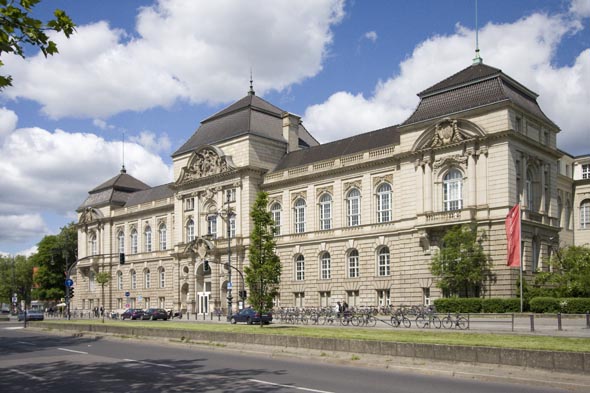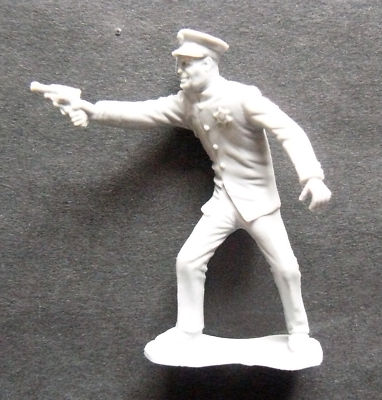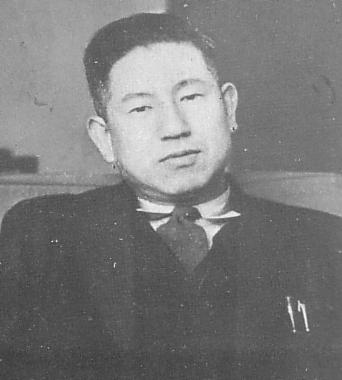
As the last of the right wing thieving fuck governments is toppled in Europe lets go back to a time when Americans wern't religous nuts who got divorced anyway and to a time when there was still some guts and idealism remaining.
Richard Sorge, the son of a German mining engineer, was born in Baku, Russia, on 4th October, 1895. Sorge was the youngest of nine children. In 1898 the Sorge family moved back to Germany.He wasn't the stuff of the make believe weekend soldier that writes bullshit on the internet but a real one.And as we know real ones are far and few between.

Richard Sorge, the son of a German mining engineer, was born in Baku, Russia, on 4th October, 1895. Sorge was the youngest of nine children. In 1898 the Sorge family moved back to Germany.He wasn't the stuff of the make believe weekend soldier that writes bullshit on the internet but a real one.And as we know real ones are far and few between.

On the outbreak of the First World War Sorge joined the German Army. In June 1915 Sorge's unit was transferred to the Eastern Front. He was a courageous soldier and was awarded the Iron Cross. In March 1916 Sorge was badly wounded when both legs were broken by shrapnel. above good paint job and you have partizans or resistance fighters
While in hospital he began a relationship with one of his nurses. Over the next few months he met and was influenced by the woman's Marxist father. Not fit enough to return to the frontline, Sorge was allowed to study at Berlin University.  Later he recalled that he now "decided not only to study, but also to take part in the organized revolutionary movement".
Later he recalled that he now "decided not only to study, but also to take part in the organized revolutionary movement".
 Later he recalled that he now "decided not only to study, but also to take part in the organized revolutionary movement".
Later he recalled that he now "decided not only to study, but also to take part in the organized revolutionary movement".In 1919 Sorge was formerly released from the army and he transferred his studies to the University of Kiel. He alsojoined the newly formed German Communist Party (KPD). After leaving university he worked as a journalist and in April 1925 he moved to the Soviet Union where he started work for the Comintern Intelligence Division.
He alsojoined the newly formed German Communist Party (KPD). After leaving university he worked as a journalist and in April 1925 he moved to the Soviet Union where he started work for the Comintern Intelligence Division.
 He alsojoined the newly formed German Communist Party (KPD). After leaving university he worked as a journalist and in April 1925 he moved to the Soviet Union where he started work for the Comintern Intelligence Division.
He alsojoined the newly formed German Communist Party (KPD). After leaving university he worked as a journalist and in April 1925 he moved to the Soviet Union where he started work for the Comintern Intelligence Division.
Sorge was recruited as a spy for the Soviet Union and using the cover of being a journalist he was sent to various European countries to assess the possibility of communist uprisings taking place. In 1929 Sorge arrived in England to "study the labour movements, the status of the Communist Party and the political and economic conditions in Britain." He was instructed to remain undercover and not to become involved in politics while living in England.

In November 1929 Sorge returned to Germany where he was instructed to join the Nazi Party and not to associate with left-wing activists. To help develop a cover for his spying activities he obtained a post working for the newspaper, Getreide Zeitung. Sorge moved to China and made contact with another spy, Max Klausen . Sorge also met Agnes SmedleyAgnes was one of the few people of whom one can truly say that her character had given beauty to her face,
. Sorge also met Agnes SmedleyAgnes was one of the few people of whom one can truly say that her character had given beauty to her face,  which was both boyish and feminine, rugged and yet attractive. She was one of the few spiritually great people in the world, with that burning sympathy for the misery and wrongs of mankind which some of the saints and some of the revolutionaries have possessed. For her the wounded soldiers of China, the starving peasants and the overworked coolies, were brothers in a real sense. She was acutely, vividly aware of their misery and could not rest for trying to alleviate it. Unlike those doctrinaire revolutionaries who love the masses in the abstract but are cold to the sufferings of individuals, Agnes Smedley spent much of her time, energy, and scant earnings in helping a multitude of individuals."
which was both boyish and feminine, rugged and yet attractive. She was one of the few spiritually great people in the world, with that burning sympathy for the misery and wrongs of mankind which some of the saints and some of the revolutionaries have possessed. For her the wounded soldiers of China, the starving peasants and the overworked coolies, were brothers in a real sense. She was acutely, vividly aware of their misery and could not rest for trying to alleviate it. Unlike those doctrinaire revolutionaries who love the masses in the abstract but are cold to the sufferings of individuals, Agnes Smedley spent much of her time, energy, and scant earnings in helping a multitude of individuals." ,She the well-known left-wing journalist working for the Frankfurter Zeitung. She introduced Sorge to Ozaki Hotsumi,
,She the well-known left-wing journalist working for the Frankfurter Zeitung. She introduced Sorge to Ozaki Hotsumi,  who was employed by the Japanese newspaper, Asahi Shimbun. Later Hotsumi agreed to join Sorge's spy network. As a journalist Sorge established himself as an expert on Chinese agriculture. This gave him the freedom to travel around the country making contacts with members of the Chinese Communist Party.
who was employed by the Japanese newspaper, Asahi Shimbun. Later Hotsumi agreed to join Sorge's spy network. As a journalist Sorge established himself as an expert on Chinese agriculture. This gave him the freedom to travel around the country making contacts with members of the Chinese Communist Party.
 which was both boyish and feminine, rugged and yet attractive. She was one of the few spiritually great people in the world, with that burning sympathy for the misery and wrongs of mankind which some of the saints and some of the revolutionaries have possessed. For her the wounded soldiers of China, the starving peasants and the overworked coolies, were brothers in a real sense. She was acutely, vividly aware of their misery and could not rest for trying to alleviate it. Unlike those doctrinaire revolutionaries who love the masses in the abstract but are cold to the sufferings of individuals, Agnes Smedley spent much of her time, energy, and scant earnings in helping a multitude of individuals."
which was both boyish and feminine, rugged and yet attractive. She was one of the few spiritually great people in the world, with that burning sympathy for the misery and wrongs of mankind which some of the saints and some of the revolutionaries have possessed. For her the wounded soldiers of China, the starving peasants and the overworked coolies, were brothers in a real sense. She was acutely, vividly aware of their misery and could not rest for trying to alleviate it. Unlike those doctrinaire revolutionaries who love the masses in the abstract but are cold to the sufferings of individuals, Agnes Smedley spent much of her time, energy, and scant earnings in helping a multitude of individuals." ,She the well-known left-wing journalist working for the Frankfurter Zeitung. She introduced Sorge to Ozaki Hotsumi,
,She the well-known left-wing journalist working for the Frankfurter Zeitung. She introduced Sorge to Ozaki Hotsumi, 
In May 1933 the Soviet Union decided to get Sorge to organize a spy network in Japan. As cover Sorge went to Nazi Germany where he was able to get commissions from two newspapers, the Borsen Zeitung and the Tagliche Rundschau. He also got support from the Nazi theoretical journal,Geopolitik. Later he was to get work from the Frankfurter Zeitung.dsEQ~~_35.JPG)
Sorge arrived in Japan in September 1933. He was warned by his spymaster not to have contact with the underground Japanese Communist Party or with the Soviet Embassy in Tokyo. His spy network in Japan include Max Klausen, Ozaki Hotsumi, and two other Comintern agents, Branko Vukelic , a journalist working for the French magazine, Vu and a Japanese journalist, Miyagi Yotoku, who was employed by the English-language newspaper, the Japan Advertiser.
, a journalist working for the French magazine, Vu and a Japanese journalist, Miyagi Yotoku, who was employed by the English-language newspaper, the Japan Advertiser.
 , a journalist working for the French magazine, Vu and a Japanese journalist, Miyagi Yotoku, who was employed by the English-language newspaper, the Japan Advertiser.
, a journalist working for the French magazine, Vu and a Japanese journalist, Miyagi Yotoku, who was employed by the English-language newspaper, the Japan Advertiser.Sorge soon developed good relations with several important figures working at the German Embassy in Tokyo. This included Eugen Ott and the German Ambassador Herbert von Dirksen. This enabled him to find out information about Germany's intentions towards the Soviet Union. Other spies in the network had access to senior politicians in Japan including prime minister Fumimaro Konoye and they were able to obtain good information about Japan's foreign policy.
and they were able to obtain good information about Japan's foreign policy.
As a result of the information accumulated by the network Sorge was able to give Joseph Stalin advance warning about the Anti-Comintern Pact(1936), the German-Japanese Pact (1940) and Japan's attack on Pearl Harbour. His greatest achievement was to inform the Soviet Union in December, 1940, of the proposed Operation Barbarossa.

Despite the efforts of Sorge, Joseph Stalin did not believe that the German Army would attack at that time and did not take the necessary action. As Leonard Trepper, the head of Red Orchestra, later pointed out: "The generalissimo preferred to trust his political instinct rather than the secret reports piled up on his desk. Convinced that he had signed an eternal pact of friendship with Germany, he sucked on the pipe of peace."
the head of Red Orchestra, later pointed out: "The generalissimo preferred to trust his political instinct rather than the secret reports piled up on his desk. Convinced that he had signed an eternal pact of friendship with Germany, he sucked on the pipe of peace."
 the head of Red Orchestra, later pointed out: "The generalissimo preferred to trust his political instinct rather than the secret reports piled up on his desk. Convinced that he had signed an eternal pact of friendship with Germany, he sucked on the pipe of peace."
the head of Red Orchestra, later pointed out: "The generalissimo preferred to trust his political instinct rather than the secret reports piled up on his desk. Convinced that he had signed an eternal pact of friendship with Germany, he sucked on the pipe of peace."At the end of August, 1941, Sorge was able to tell Joseph Stalin that Japan would not attack the Soviet Union that year. Two months later Sorge was arrested in Tokyo and was held in prison for three years. The Soviet Union refused to exchange Sorge for Japanese prisoners they held and he was hung on 7th November, 1944
No comments:
Post a Comment